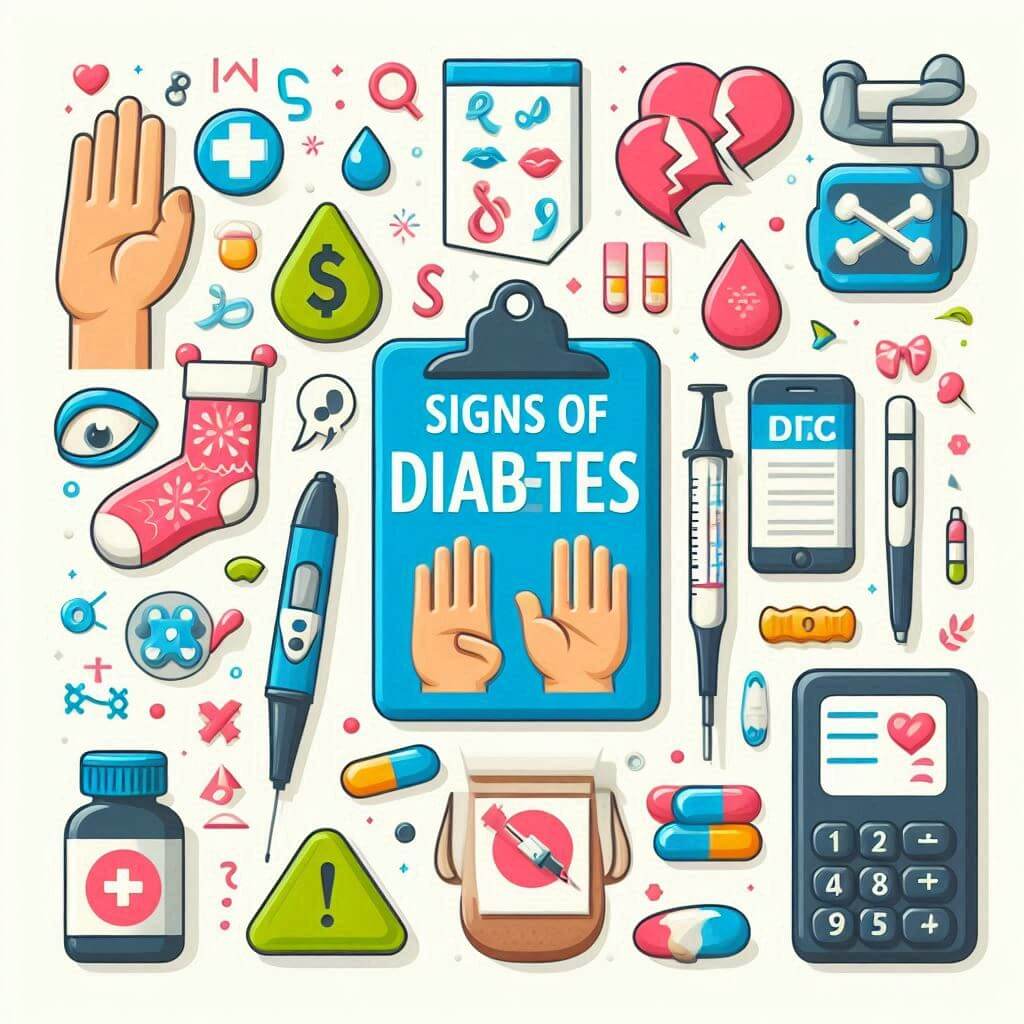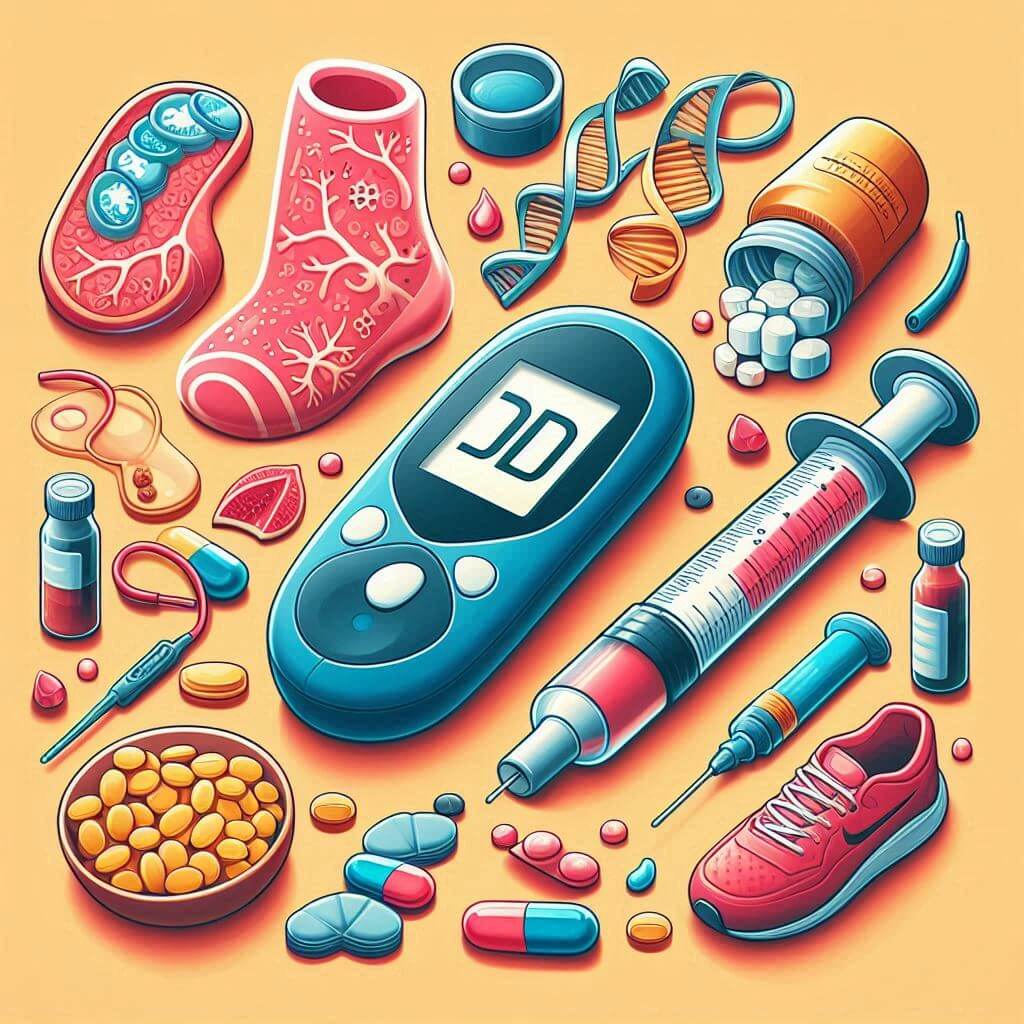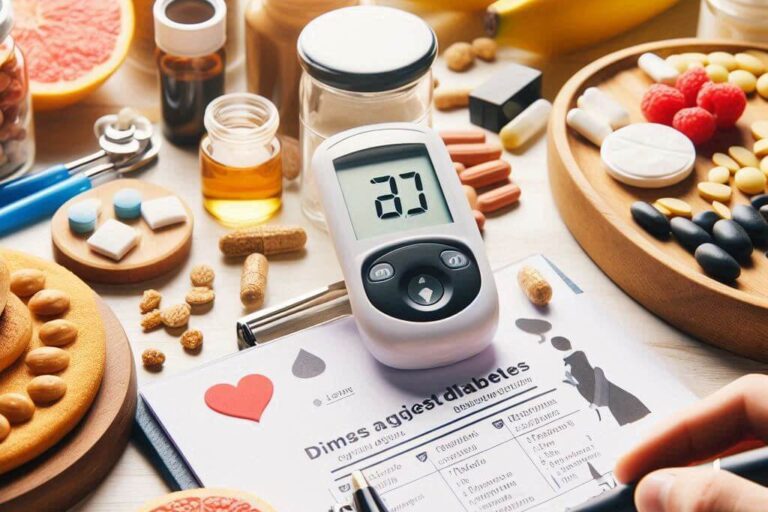Diabetes, a chronic disease that affects millions of people around the world, is characterized by high blood glucose levels.
Recognizing the early signs of this disease is crucial for timely diagnosis and treatment, avoiding serious complications.
Ignoring the symptoms of diabetes can have serious consequences, such as heart disease, nerve damage, kidney problems and eye problems.
In this detailed and comprehensive guide, we'll explore the top 10 signs of diabetes that you shouldn't ignore, delving deeper into each of them with examples, details, and additional information: International Diabetes Federation (IDF):
1. Excessive Thirst and Dry Mouth:
- Constant and uncontrollable thirst: The feeling of thirst is so intense that you need to drink water all the time, even after drinking large amounts. Imagine having to carry a bottle of water everywhere you go, because the feeling of dry mouth and the need to drink are constant. This thirst can be so intense that it interferes with your daily activities and your sleep.
- Dry and sticky mouth: Your mouth may feel constantly dry, especially in the morning when you wake up, as if it has cotton in it. Your saliva may be thick and sticky, making it difficult to speak and chew. Cracks or sores at the corners of your mouth (angular cheilitis) may also be common.
- Dry eye sensation: Your eyes may become dry, irritated, and itchy, making it difficult to see. This sensation may be so uncomfortable that you need to use eye drops frequently or your eyes may feel like they are “burning.”
2. Frequent Urination:
- Increased urinary frequency: You need to urinate more often than usual, including at night (nocturia). This frequent need to urinate can wake you up several times during the night, disrupting your sleep and leaving you feeling tired the next day.
- High urine volume: The amount of urine you expel with each urination is greater than usual. You may notice that you need to urinate a large amount each time, even after drinking a small amount of water.
- Urgency to urinate: You feel a sudden, urgent need to urinate that can be difficult to control. This urge can be so intense that you need to rush to the bathroom as quickly as possible, with the risk of accidents.
3. Constant Hunger:
- Hunger even after meals: You continue to feel hungry even after eating full, nutritious meals. This hunger may be so intense that you need to snack between meals or eat smaller meals more frequently.
- Intense and frequent hunger: Hunger can be so intense that you need to eat at any time of the day, even in the middle of the night. This constant hunger can lead you to eat more than necessary, resulting in weight gain.
- Loss of appetite in some cases: In some cases, diabetes can cause loss of appetite, especially early in the disease. This loss of appetite can lead to weight loss, even without changes in diet or exercise habits.
4. Unexplained Weight Loss:
- Weight loss without diet or exercise: You lose weight without dieting or changing your exercise habits. This weight loss may be gradual or sudden, with no apparent explanation.
- Reduction in muscle mass: Weight loss can be accompanied by loss of muscle mass, leaving you looking weaker and thinner. This loss of muscle mass can lead to fatigue, weakness, and difficulty performing physical activities.
- Fatigue and weakness: Muscle loss can lead to fatigue and general weakness, making it difficult to perform daily tasks and routine activities. You may feel tired even after getting adequate rest.

5. Fatigue:
- Extreme and persistent fatigue: You feel constantly tired, even after getting adequate rest. This fatigue can be so intense that you have difficulty getting out of bed or doing simple activities.
- Lack of power: You don't have the energy to do routine activities or have fun. This lack of energy can affect your social, professional, and personal life.
- Difficulty concentrating: Fatigue can affect your ability to concentrate and pay attention. You may have difficulty focusing on work, studying, or conversations.
6. Blurred Vision:
- Difficulty focusing on objects: You may have difficulty focusing on objects near or far, such as when reading a book, watching television, or driving. Your vision may be blurry or distorted, as if you were looking through fog.
- Fluctuations in vision: Vision can vary throughout the day, with periods of clear and blurry vision. These fluctuations can be unpredictable and interfere with daily activities.
- Difficulty seeing at night: You may have difficulty seeing clearly at night, such as when driving in low-light conditions. This can increase your risk of accidents.
7. Wounds that take a long time to heal:
- Slow healing of cuts and scrapes: Minor wounds, such as cuts or scrapes, take longer than normal to heal. Healing may be slow and painful, with scabbing and infection.
- Common wound infections: Wounds can easily become infected because the body has difficulty fighting bacteria. Infections can be serious and lead to complications such as cellulitis.
- Loss of skin sensitivity: You may lose sensation in some areas of your skin, making it difficult to notice cuts, scrapes, or other signs of aging. injuries. This can increase the risk of injury and infection.
8. Recurrent Infections:
- Frequent urinary tract infections: You may have recurring urinary tract infections, even after proper treatment. Urinary tract infections can cause pain when urinating, blood in the urine, and fever.
- Fungal skin infections: You may develop fungal skin infections, such as athlete's foot or candidiasis. These infections can cause itchy, red, and flaky skin.
- Frequent respiratory infections: You may have recurring respiratory infections, such as colds and flu. These infections can be more severe and long-lasting in people with diabetes.
9. Tingling or Numbness in Hands and Feet:
- Tingling or numbness sensation: You may experience tingling, numbness, or burning in your hands, feet, or legs. This sensation may be intermittent or constant, and may be worse at night.
- Loss of sensitivity: Numbness can progress to loss of sensation, making it difficult to perceive temperature, pain, or pressure. This can increase the risk of injury, such as burns or cuts.
- Difficulty walking: In severe cases, diabetic neuropathy can affect the feet, causing pain, weakness, and difficulty walking.
10. Mood Swings and Irritability:
- Irritability and mood swings: You may experience sudden mood swings, irritability, anxiety, or depression. These mood swings can affect your relationships and daily activities.
- Difficulty concentrating: You may have difficulty concentrating, remembering information, or making decisions. This can affect your performance at work, school, or other activities.
- Sleep changes: You may have difficulty sleeping, insomnia, or restless sleep. These sleep changes can contribute to fatigue and irritability.

It is important to note that these signs can vary from person to person and are not always present in all cases of diabetes. If you have any of these symptoms, it is essential to see a doctor to perform blood tests and confirm the diagnosis. Brazilian Diabetes Society (SBD):
Early diagnosis and proper treatment are essential to prevent serious complications associated with diabetes. Don't ignore the signals your body is sending you – they can be a crucial indicator of your health.
| Question | Response |
|---|---|
| What is diabetes? | Diabetes is a chronic disease characterized by high blood glucose levels. It can lead to serious complications if not well controlled. |
| What are the early signs of diabetes? | Early signs include excessive thirst, dry mouth, frequent urination, constant hunger, unexplained weight loss, fatigue, blurred vision, wounds that are slow to heal, recurring infections, tingling or numbness in the hands and feet, and mood changes. |
| Why do I feel excessively thirsty and have a dry mouth? | Excessive thirst and dry mouth can occur because the body is trying to get rid of excess glucose in the blood, which can result in dehydration. |
| What to do if you are urinating too frequently? | Frequent urination can be a sign of diabetes. It is important to see a doctor to assess the cause and receive appropriate treatment. |
| How is constant hunger related to diabetes? | Constant hunger can occur because the body is not utilizing glucose effectively, which leads to a continuous feeling of hunger. |
| Why am I losing weight for no apparent reason? | Unexplained weight loss can be a sign of diabetes, as the body may be burning muscle and fat for energy due to difficulty processing glucose. |
| What causes fatigue in diabetes? | Fatigue can occur because the body is not getting the energy it needs from glucose, resulting in extreme tiredness and lack of energy. |
| How is blurred vision related to diabetes? | Diabetes can cause fluctuations in glucose levels, affecting vision and causing blurry or distorted vision. |
| Why do wounds take a long time to heal with diabetes? | High blood glucose levels can affect the body's ability to heal wounds and fight infections. |
| What to do if you have frequent infections? | Recurrent infections can be a sign of uncontrolled diabetes. It is essential to see a doctor to adjust your treatment and treat infections appropriately. |
| How is tingling in hands and feet related to diabetes? | Tingling can be a symptom of diabetic neuropathy, which occurs when diabetes causes damage to peripheral nerves. |
| Why can mood swings occur with diabetes? | Mood swings can be caused by the impact of diabetes on the metabolism and glucose regulation, affecting emotional and psychological well-being. |
This table can help clarify common questions about the signs and symptoms of diabetes and the importance of seeking medical advice.









